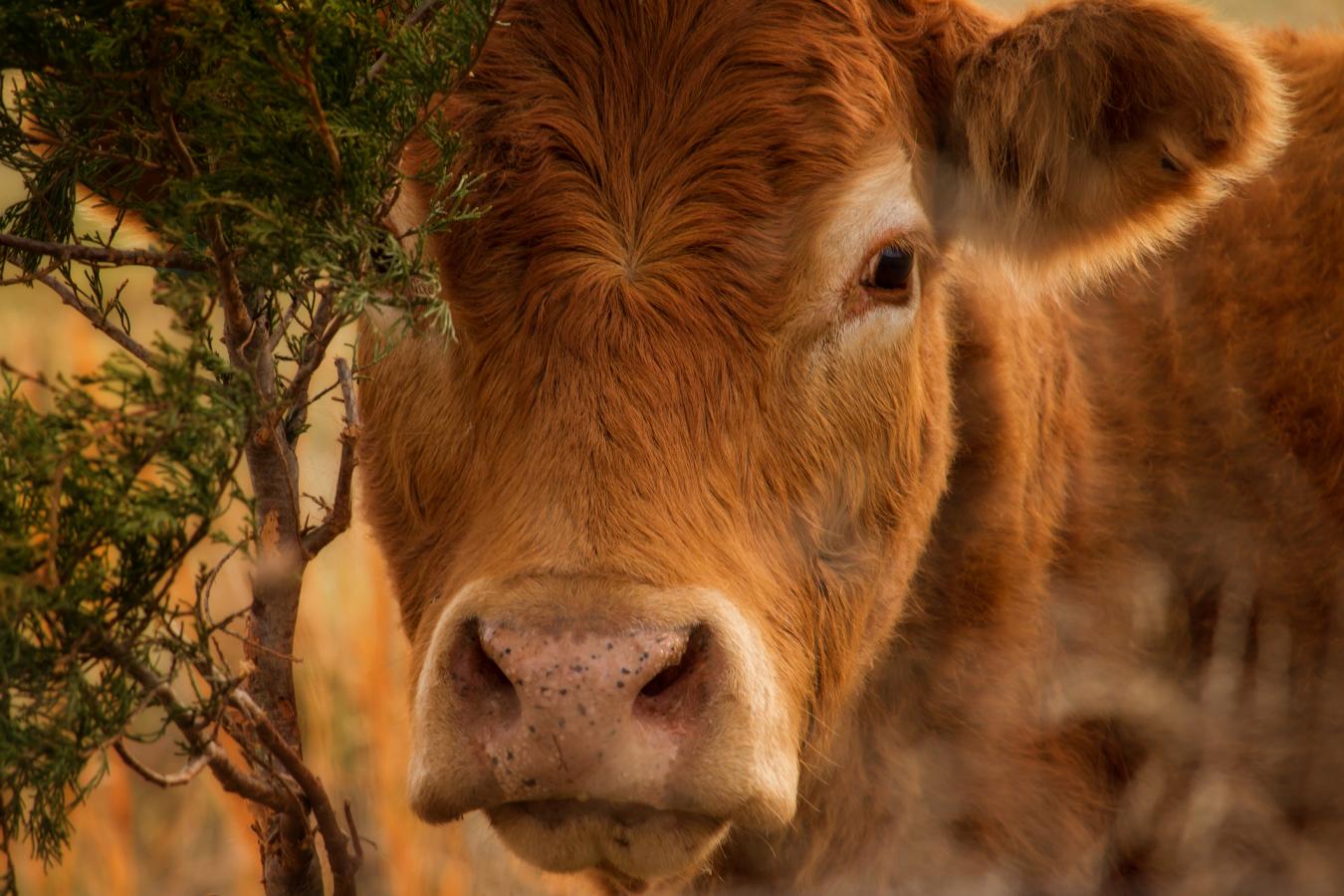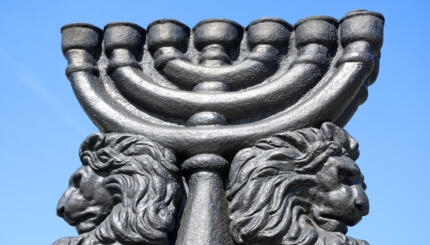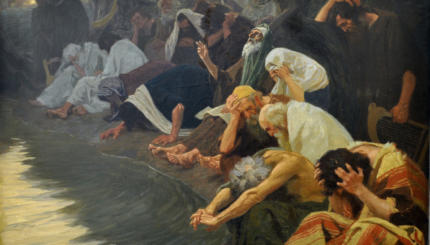The Red Heifer (parah adumah in Hebrew), was the cow whose ashes were used in the purification rites for one who had been contaminated through having come into contact with a corpse.
The Red Heifer is discussed in Numbers 19:1-22, which is in the portion Chukat. These verses are also read as the final Torah reading on Shabbat Parah, the Sabbath of the Red Heifer, which occurs on the last Shabbat of the month of Adar, shortly before Passover.
Because only people who were pure could eat from the Passover sacrifice, in ancient times a public announcement reminded anyone who had become impure to purify themselves before making the Passover pilgrimage to Jerusalem.
The Haftarah, Ezekiel 36:16-38, also deals with issues of being cleansed from contamination, but the impurity in this case symbolizes human sinfulness. But, like physical impurity, sins can be overcome. As God says in Ezekiel 36:25,26: “I will sprinkle clean water upon you, and you shall be clean: I will cleanse you from all your uncleanness and from all your fetishes [idolatrous practices]. And I will give you a new heart and put a new spirit into you.” This renewal of self and nation reflects Passover’s theme of redemption.

Help us keep Jewish knowledge accessible to millions of people around the world.
Your donation to My Jewish Learning fuels endless journeys of Jewish discovery. With your help, My Jewish Learning can continue to provide nonstop opportunities for learning, connection and growth.
Below is a summary of the biblical text concerning the Red Heifer. Read the full text in English and Hebrew here: Numbers 19:1-22.
God said to Moses and Aaron, ‘Speak to the sons of Israel and find a completely red cow on which there is no blemish and no yoke has ever come. You shall give it to Eleazar, the priest, and he shall take it outside the camp and slaughter it. This cow shall then be made into an offering and those that participate in the sacrifice shall be unclean until the evening.
‘Remember this everlasting statute,’ God continues. ‘One who touches the corpse of any human soul becomes unclean for seven days. If the corpse is in a tent, all that is within the tent is also unclean. There is a purification process involving water for people and their possessions. If one does not purify oneself after a state of uncleanliness, that soul shall be uprooted from Israel. Anything unclean must be made clean and pure before coming in contact with the holy Sanctuary.’ (From Parashat Chukat: Summary by Nancy Reuben Greenfield)
Nisan
Pronounced: nee-SAHN, Origin: Hebrew, Jewish month, usually coinciding with March-April.
Talmud
Pronounced: TALL-mud, Origin: Hebrew, the set of teachings and commentaries on the Torah that form the basis for Jewish law. Comprised of the Mishnah and the Gemara, it contains the opinions of thousands of rabbis from different periods in Jewish history.



